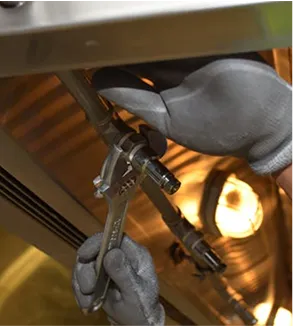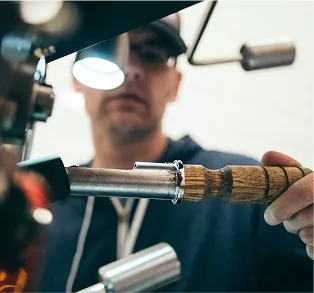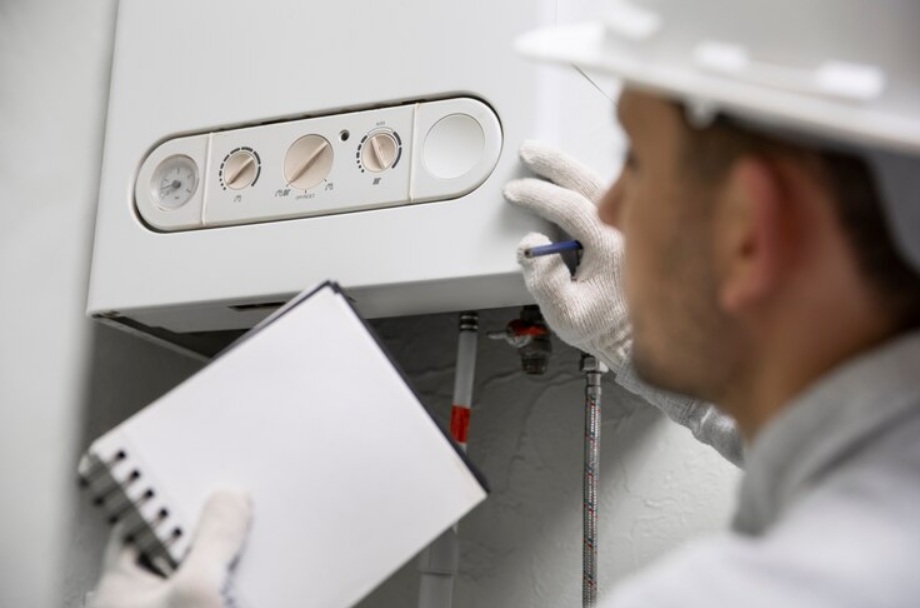
If your furnace in Sugar Hill has started making strange or unexpected noises, it is more than just annoying. It is often the first sign that something inside the system is not working right. Homeowners usually notice these sounds when the heating kicks on during cooler months, especially as fall progresses into early September. Knocking, scraping, or whirring noises are not part of normal operation and should be taken seriously. Your comfort and your system’s long-term health can both be affected if these problems are ignored.
Strange sounds often point to an issue with the blower motor, which plays a central role in pushing warm air through your home. When this part starts to fail, it can affect how well your furnace runs and may even lead to a complete system breakdown. Understanding what causes these noises and how to respond helps homeowners avoid more costly repairs down the line and keeps everyone in the house safe and warm.
Common Causes Of Furnace Blower Motor Noises
When your furnace blower motor starts making noises it did not used to, you are likely dealing with one of a few common problems. Most of these noises appear gradually as wear and tear builds up, but sometimes they can show up suddenly too.
Here are some reasons your blower motor might be making unusual sounds:
- Loose or damaged parts: Over time, screws and components inside the blower assembly can become loose. When this happens, they may rattle or vibrate when the blower turns on.
- Worn bearings or belts: Belts stretch and wear down, and bearings inside the motor can dry out or break. This often leads to squealing or screeching noises during operation.
- Motor issues: If the motor itself is starting to go bad, it can make humming or buzzing sounds. It may also struggle to start up or shut down properly.
- Dirty or clogged unit: Dirt buildup inside the blower system can create friction or cause the motor to overwork, leading to irregular noises.
- Obstructed blower wheel: Sometimes debris gets into the blower housing and interferes with the function of the fan, making grinding or scraping sounds.
Many homeowners in Sugar Hill deal with these issues after long periods of furnace use without maintenance. Just like your car can wear out if not serviced, a furnace blower motor also suffers with time if not inspected.
One example: A homeowner heard a loud screech each time the heat turned on. They assumed it was the ducts expanding, but after waiting too long to get it checked, the blower motor eventually failed. What started as a minor belt issue turned into a complete motor replacement. Addressing sounds early on could have prevented that larger repair.
How To Identify Different Furnace Noises
Not all furnace noises mean the same thing. By paying attention to the kind of noise you hear, it becomes easier to understand what might be wrong. Being able to describe the sound clearly when talking to a technician helps move the repair process along faster.
Here are the most common types of furnace blower motor noises and what they might mean:
1. Squealing or screeching: This usually points to worn-out belts or dry motor bearings. It can happen more during colder months when parts tighten up or when belts begin to warp.
2. Grinding or metal-on-metal sounds: These sounds likely come from issues with the blower wheel or mounting hardware. Sometimes a piece of debris gets stuck, or a component is out of alignment.
3. Banging or thumping: A loud banging noise might mean that something in the motor assembly has broken loose. It could also be an unbalanced blower wheel hitting the housing.
4. Buzzing or humming: This often means the motor is overheating or struggling to get started. Electrical problems like faulty connectors or failing capacitors could also be to blame.
5. Rattling: When you hear rattling, think loose panels or screws. It might also be a sign that the motor mount is starting to shift from its normal position.
If you hear any of these sounds coming from your furnace in Sugar Hill, turn the system off and avoid running it until it is checked. Using the furnace while a problem exists can cause more damage or endanger other parts of the system. A trained eye will be able to quickly confirm the source of the noise and take the correct steps to fix it.
Actions To Take When You Hear Unusual Noises
Once that unusual sound starts coming from your furnace in Sugar Hill, it is important to act quickly. Leaving the system running can make things worse and lead to bigger, more expensive problems. Step one is always to turn off the furnace and stop using heat until a technician has had the chance to inspect it. A short pause now helps prevent long-term damage later.
Avoid trying to investigate the issue yourself beyond a simple visual check. Parts inside a furnace are both sensitive and potentially dangerous to work around without the right tools or training. Instead, take a moment to write down detailed notes about when the noise happens. This helps save time when you are describing the issue to our technicians.
Here is what we recommend:
- Shut off the system immediately to prevent further damage
- Make a mental note or short video of the sound if possible. A clear audio recording can help during diagnostics
- Resist the urge to open panels or touch internal parts unless you are shutting off the main power at the breaker for safety
- Avoid running the heat again, even if the sound temporarily stops
- Schedule an inspection quickly. Waiting longer can mean more damage to the motor and other components
Hearing an occasional click when the heat starts up is usually normal. But persistent humming, sharp squeals, or loud banging sounds signal something that needs attention. When a blower motor noise is not addressed right away, the system can lock up, cause airflow issues, or completely break down. That is why fast action is key.
How Our Professionals Diagnose Furnace Issues in Sugar Hill
When our technicians arrive for furnace repair in Sugar Hill, the first step is a thorough inspection. Listening to the sound in person helps us narrow down the issue, but we do not stop there. Our professionals check for worn belt material, measure motor resistance, inspect the blower wheel, and look for misaligned or broken parts that can cause excess vibration or friction.
After locating the root cause of the noise, we review the repair options with the homeowner. This may include replacing worn belts, tightening loose components, cleaning debris out of the fan housing, or changing the motor altogether if the problem has progressed. We only replace what is needed and make sure everything is test-run before closing up the unit.
Safety checks matter too. An unusual noise might be caused by an overheating motor or bad electrical wiring. Both of these can pose a fire risk if ignored. That is why we take time not just to fix the immediate issue but also to look for anything else that could impact safe operation.
Our focus always stays on restoring your heat while maintaining the longest possible lifespan for your furnace. When a blower motor issue is fixed properly, it helps prevent repeated breakdowns across the colder months and cuts down on unexpected repair visits.
Simple Ways To Avoid Future Blower Motor Problems
One of the best ways to stop blower motor noises before they start is to build good furnace habits. It is easier and usually cheaper to catch small wear-and-tear signs during a scheduled maintenance visit than to fix a major breakdown in the middle of fall or winter.
Here are a few ways homeowners in Sugar Hill can help their furnace stay quiet and reliable:
- Replace air filters regularly. Dirty filters make your system work harder, and that extra strain impacts motor components
- Listen for subtle changes. A faint hum growing louder over time is often the first clue something is off
- Keep intake and output vents clear. When airflow is blocked, internal parts shift and work harder than they should
- Schedule routine furnace maintenance. Systems checked once or twice a year stay in better shape and operate more quietly
- Do not ignore minor sounds. A 10-second squeal every so often might not seem urgent, but it can quickly snowball into a worn belt or seized motor
Having a trained technician inspect your furnace at the start of the heating season goes a long way. They clean, adjust, and prepare the system for full use, looking for anything that could lead to failure. That early check often picks up issues before you ever hear a strange noise.
Schedule Your Furnace Repair Today
If your furnace blower motor makes loud or unusual noises, it is a warning sign you should never ignore. These sounds do not go away on their own. Catching them early can help you avoid larger problems, restore full heat across your home, and keep your HVAC system running safely.
Whether it is squealing, banging, or humming, every sound means something and our technicians know how to handle it. Do not take chances with your comfort heading into cooler months. Contact Southeast Heating and Cooling for reliable furnace repair in Sugar Hill.
If unusual furnace noises persist in Sugar Hill, it may be time to schedule professional furnace repair in Sugar Hill to prevent further damage and ensure your system runs safely through the colder months. Southeast Heating and Cooling is here to provide a thorough evaluation and reliable repair. For a quick estimate or to book a service visit, please contact us today.
Related Blogs
Customer Testimonials


Financing


Latest Blogs

Ultimate Guide to Home Heating Solutions & Systems

Why Proactive HVAC Maintenance Saves You Money & Headaches

Troubleshooting Common Furnace Issues










